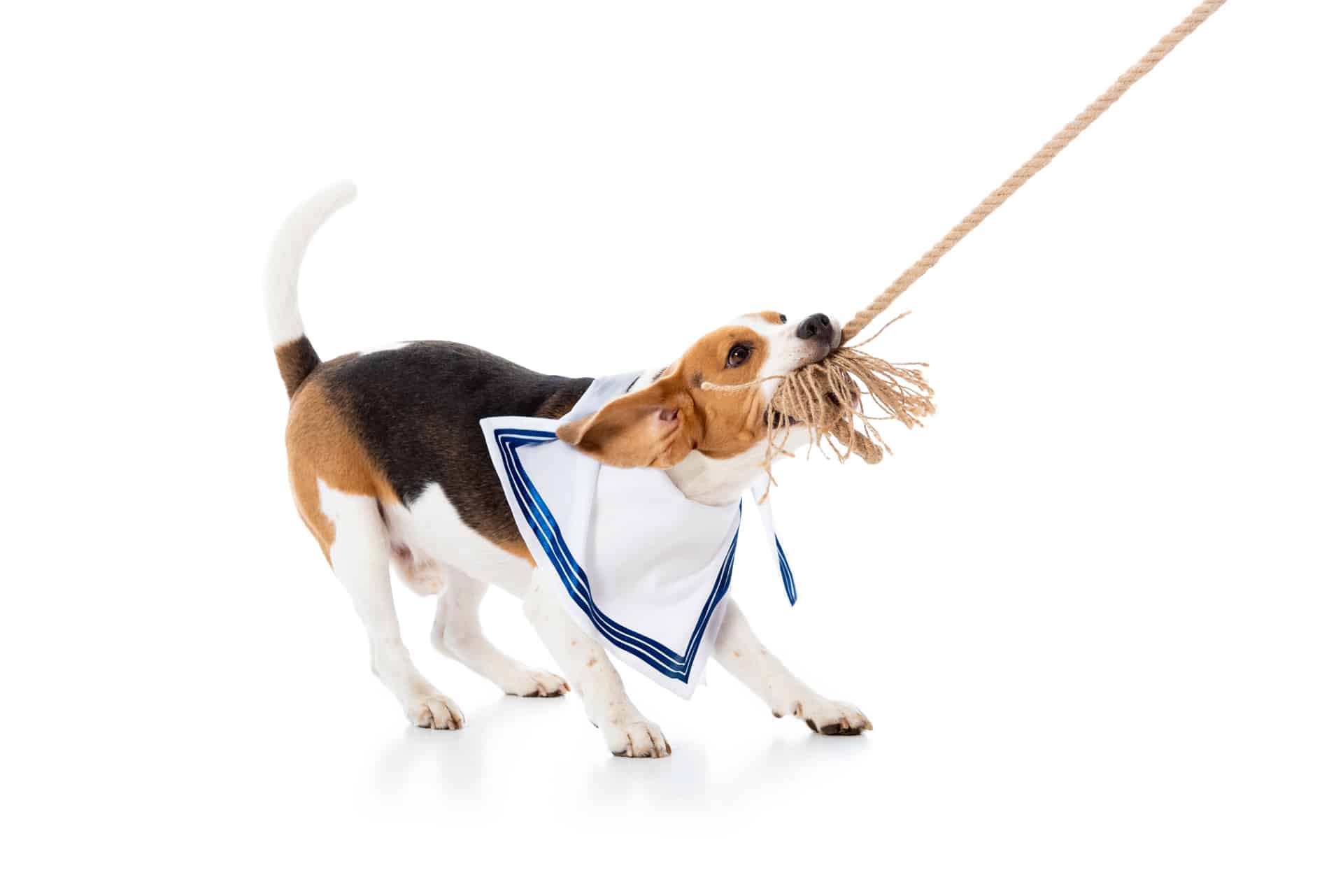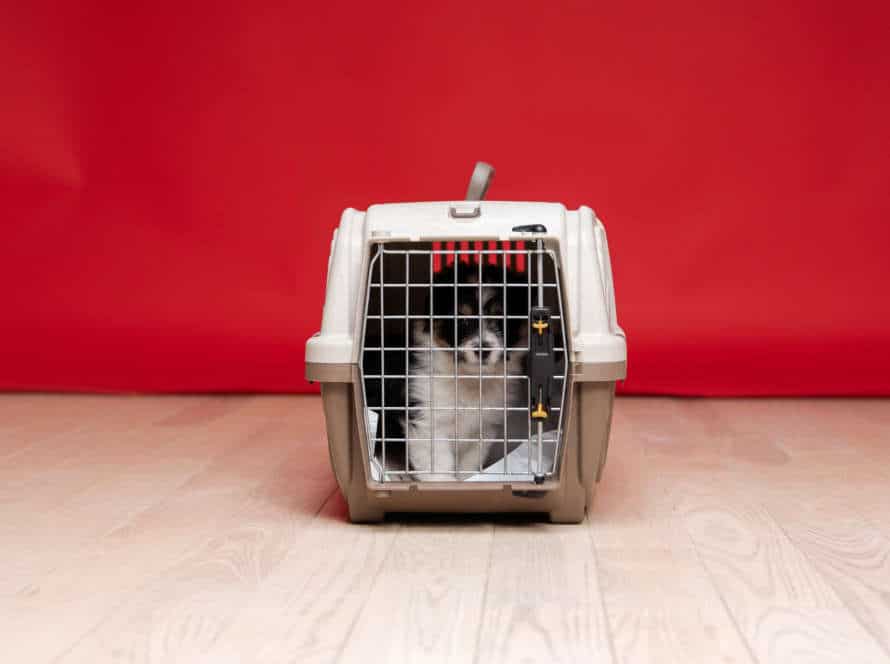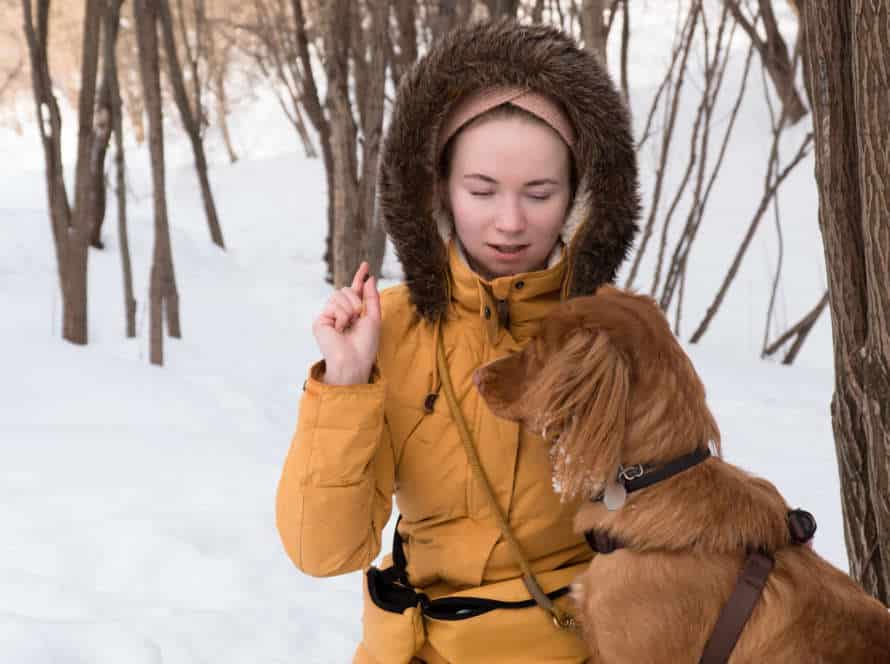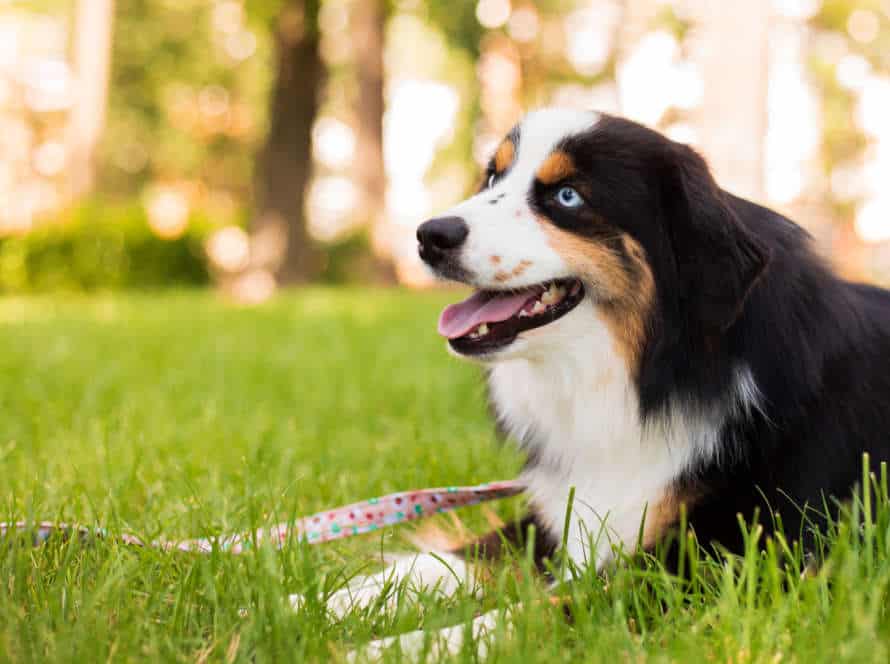Understanding Puppy Biting and Redirecting
Puppy biting can be a problem for pet owners. As puppies explore, they may bite due to curiosity or teething. To solve this issue, it’s important to understand why it’s happening. Redirecting is often used to stop it.
This article talks about understanding puppy biting, redirecting and how to handle any issues that come up.
Why do puppies bite?
Puppies bite for a few reasons, like teething, socializing, and playing. It’s important to know why your puppy bites, so you can stop it and avoid future issues. Here are tips to redirect the biting:
- Give them chew toys: Puppies need to chew, especially while teething. Offer different chew toys to get them to bite something else, instead of your hands or feet.
- Socialize: Unsocialized puppies can get anxious and bite. Let your puppy meet different people and animals to socialize them.
- Be consistent: Training your puppy to stop biting takes time and patience. Be consistent in training and reinforcing good behaviors.
- No physical punishment: Don’t punish your puppy for biting. This may cause fear and aggression, leading to more biting.
With consistency and persistence, puppies can learn to have better behaviors and habits.
Redirecting techniques for puppy biting
Puppy biting is a common problem for dog owners. But, redirecting your pup’s biting behaviour can help you train them to stop. Here are some tips:
- Make noise: Clap or say “ouch” if your pup bites you. This will teach them that biting is not allowed.
- Get a toy: Give your puppy a chew toy or bone as an alternative. Praise them when they start to chew the toy instead of you.
- Be consistent: Redirecting your pup’s biting takes time and consistency. If you don’t give up, you’ll eventually see results. It’s okay if there are setbacks. Just stay patient and consistent – with practice your puppy will learn not to bite.
Importance of consistency in redirecting
Consistency is the key to success when redirecting a puppy’s biting behaviour. Dogs need structure and routine to understand which behaviours are not tolerated. Everyone interacting with your pup must follow the same procedure for redirection. Here are some tips:
- Decide on a noise to use as a deterrent when your pup starts biting.
- Have consistent redirection methods, like giving a toy to chew or a designated area to play in.
- Communicate with others involved in pup care to ensure they’re following the same process.
- Be persistent, even if pup doesn’t immediately respond or setbacks occur. Show them consistently that biting is not acceptable.
Pro tip: Use positive reinforcement alongside consistent redirection to reward good behaviour.
Dealing with Setbacks in Redirecting Puppy Biting
Redirecting puppy biting is not easy. You need to be patient and consistent. But, it can be tough. Problems may happen. In this article, we’ll talk about how to stay persistent when facing challenges with redirecting puppy biting.
Understanding setbacks in puppy redirection
Setbacks in stopping puppy biting are common. So, stay consistent and persistent in the training. Here are some tips to handle the setbacks:
- Reward when pup bites chew toy, instead of you.
- Take a break if pup is tired, hungry, or stressed.
- Stay calm if pup does not respond. Reacting with aggression won’t help.
- Be consistent in redirection techniques. No physical punishment.
- Seek professional help if pup’s biting persists or becomes aggressive.
Remember, setbacks are normal. Consistency and persistence will help pup overcome the biting behavior.
Identifying common reasons for setbacks
When redirecting puppy biting, set-backs are usual. To cope, spot the typical reasons and stay consistent & persistent in your training. Here are some common causes of set-backs:
- Inconsistency: If you’re not regular in your training, your puppy may be confused about what’s okay and what’s not.
- Lack of Persistence: Redirecting puppy biting takes patience & persistence. If you quit too soon, your puppy may go back to its old habits.
- Boredom: Puppies need physical and mental stimulation. If they don’t get enough exercise or playtime, they might bite out of boredom.
- Teething: Teething is painful for puppies. They might bite to ease the pain.
To redirect puppy biting, recognize the typical reasons and stay reliable & determined in your training. Plus, reward their positive behavior & be patient – they’re still learning!
Staying persistent and consistent in redirection efforts
Redirecting puppy biting can be tricky. Don’t give up when you come across a setback. Here are some tips for staying on track:
- Reward your pup for biting chew toys instead of you.
- Use a command word or phrase to get their attention.
- Provide different chew toys and switch them up regularly.
- Persevere, even when things don’t go as planned.
Remember, training a puppy takes patience and dedication but you’ll be glad you did it in the end.
Strategies for Staying Consistent and Persistent
Redirecting puppy biting is not an easy feat. To be successful, staying consistent and persistent is a must! Despite bumps in the road – like puppy biting out of excitement – there are strategies pet owners can use to continue redirecting puppy biting. In this article, we’ll explore these strategies!
Setting realistic expectations for redirection progress
Redirecting puppy biting is not easy. Expect progress gradually. Patience, consistency and persistence are key. Here are some strategies to help:
- Use a consistent redirection command like “no bite” or “gentle”.
- Redirect attention to an appropriate toy or chew when biting.
- Give time for pup to learn and understand the redirection command.
- Always use same tone of voice and body language when redirecting.
- Setbacks during the training process are normal. Be persistent.
Realistic expectations and consistency with redirection techniques will help successfully redirect pup’s biting behavior.
Developing a consistent redirection routine
When dealing with puppy biting, it’s key to have a consistent redirection routine. This can be difficult, so consistent reinforcement is necessary for your pup to learn. Here are some tips to stay consistent and persistent:
- Be on the lookout. Spot triggers like hunger or boredom that cause biting and try to avoid them.
- Keep it the same. Use the same commands and techniques each time, and get everyone in the house to help.
- Reward good behavior. Praise your puppy for redirecting its bite behavior.
- Be patient. Results won’t happen overnight and you’ll have setbacks. Stick to your plan and remain persistent.
With a consistent redirection routine, you’ll see a change in your puppy’s biting behavior.
Staying positive and patient during the redirection process
Training a puppy not to bite can be hard, but staying positive and patient is the secret to success. Here’s how to stay consistent and persistent:
- Stay relaxed and have patience: Redirecting puppy biting takes time and patience, so don’t get mad. Positive reinforcement, like praising and treats, is really useful.
- Consistency matters: Every time your puppy bites, use the same redirection approach. This’ll help your puppy understand what behavior is allowed and what isn’t.
- Keep your puppy interested: Puppies bite when they’re bored or trying to get attention, so offer plenty of toys and activities to keep them busy.
- Try different techniques: Test out different redirection techniques to find out what works best for your pup. Maybe toys will do the trick, or maybe a chew bone or treat.
Remember, redirecting puppy biting is not a quick job, so be patient and consistent. With the right approach, you can train your puppy to stop biting and become a well-behaved companion.
Frequently Asked Questions
1. Can redirecting biting behavior in puppies take a lot of time and effort?
Yes, redirecting puppy biting can take time and effort, especially if your puppy has developed a strong and consistent biting habit. However, consistent and persistent training can help reduce the frequency and intensity of biting behavior over time.
2. What are some effective ways to redirect biting behavior in puppies?
Some effective ways to redirect puppy biting behavior include redirecting your puppy’s biting to appropriate toys or chews, using positive reinforcement training techniques such as clicker training, and consistently enforcing boundaries and rules around biting behavior.
3. Is punishment an effective way to stop puppy biting?
No, punishment is not an effective way to stop puppy biting. Punishing your puppy for biting can increase fear and anxiety, which can lead to more aggression and biting behavior. It’s important to use positive reinforcement training techniques and redirect biting behavior to appropriate toys and chews.
4. How do I stay consistent and persistent in redirecting puppy biting behavior?
Staying consistent and persistent in redirecting your puppy’s biting behavior involves setting clear rules and boundaries for what is and isn’t acceptable behavior, consistent enforcement of these rules, and positive reinforcement for appropriate behavior. It can also involve seeking professional help or guidance from a dog trainer or behaviorist.
5. Can socialization help reduce biting behavior in puppies?
Yes, socialization can help reduce biting behavior in puppies. Socialization exposes your puppy to new people, animals, and environments, helping them learn appropriate behavior and reducing anxiety and fear that can contribute to biting behavior. Proper socialization should begin early in a puppy’s life.
6. What if redirecting biting behavior doesn’t work?
If redirecting biting behavior doesn’t work, it may be necessary to seek professional help from a dog trainer or behaviorist. They can assess the underlying causes of biting behavior and provide customized training and behavior modification plans to address the issue.







